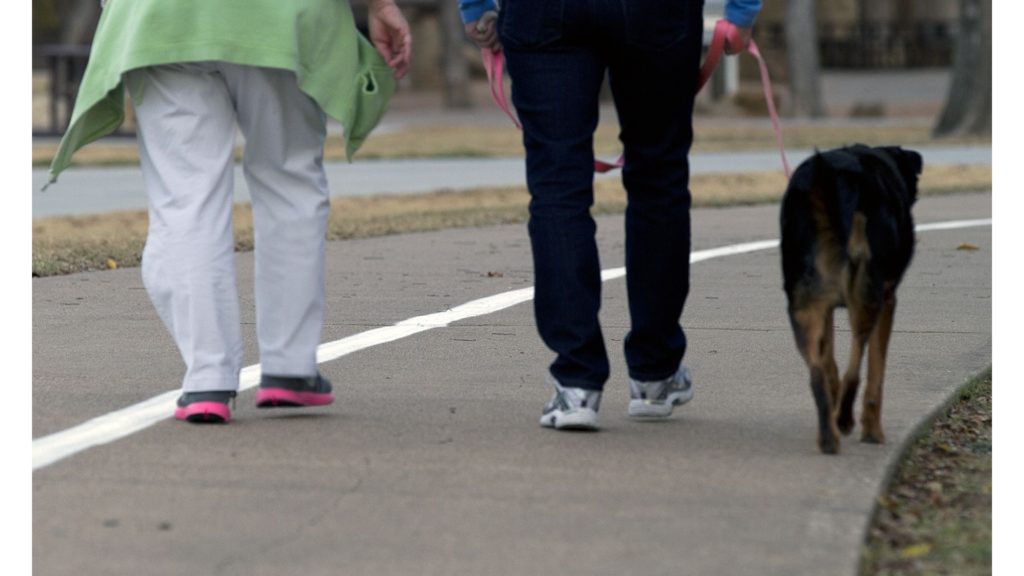[ad_1]

Survey Highlights:
- 95% of pet parents rely on their pet for stress relief.
- Nearly 7 in 10 (69%) pet parents say they take better care of their pet than themselves.
- People overwhelmingly (70%) say they would rather spend time with their pet than watch television (30%) to de-stress.
- Nearly half of people surveyed (47%) say their pets help them be physically active.
- 70% of employed pet owners say they would be happier and more productive if they could have their pet at work with them, either on site or remote.
- The most popular ways pets help people de-stress is snuggling (68%), making their owners laugh (67%) and helping them feel less lonely (61%).
Embargoed until 5 a.m. ET/4 a.m. CT on Monday, June 20, 2022
(NewMediaWire) – June 20, 2022 – DALLAS — Nearly all cat and dog owners rely on their pets for stress relief according to a new survey released by the American Heart Association, a global force for longer, healthier lives for all.
Additionally, of the 1,000 pet parents surveyed in May 2022 by Wakefield Research for the American Heart Association’s Healthy Bond for LifeTM initiative, 7 in 10 said they prefer spending time with their cat or dog to relieve stress over watching television (30%).
Companion animals are beloved members of the family. In fact, the survey found 69% of pet parents say they take better care of their pet than themselves.
To celebrate the bond between people and their pets, the American Heart Association is bringing back Best Friend Fridays. Each Friday in June, July and August, people are encouraged to share photos on social media showing how their pets are helping them stress less and practice healthy habits using the hashtag #BestFriendFridays.
“Many pet owners have found emotional support from their pets s, and science backs up the physical and mental health benefits to pet companionship,” said Glenn Levine, MD, professor of medicine at Baylor College of Medicine and chief of the cardiology section at Michael E. DeBakey VA Medical Center in Houston, volunteer medical expert for the American Heart Association’s Healthy Bond for Life and lead author of the Association’s Scientific Statement on Pet Ownership and Cardiovascular Risk. “Chronic or constant stress is a key risk factor of heart disease and stroke, and studies show having a pet can improve mood, reduce stress and encourage healthy lifestyle habits like physical activity.”
The American Heart Association’s new survey also identified nearly half of pet owners (47%) say their pets help them stay active. According to the survey the most common ways pets help their owners de-stress is through snuggles (68%), followed by making their owners laugh (67%) and helping them feel less lonely (61%).
A pet could also be the secret weapon for work productivity, with 70% of employed pet owners saying they would be happier and more productive if they could have their pet at work with them, either on-site or remotely. Pet owners under age 40 are the most likely age group to value this benefit (75%).
Overall, having a pet may help you reduce your stress, get more fit, lower blood pressure, cholesterol and blood sugar; and boost your overall happiness and well-being. Healthy Bond for Life emphasizes that the primary reason to adopt a pet is to give the pet a loving home but adopting a pet may bring with it many health benefits, both psychological and physical.
For more information about Healthy Bond for Life, visit www.heart.org/pets.
###
About the American Heart Association
The American Heart Association is a relentless force for a world of longer, healthier lives. We are dedicated to ensuring equitable health in all communities. Through collaboration with numerous organizations, and powered by millions of volunteers, we fund innovative research, advocate for the public’s health and share lifesaving resources. The Dallas-based organization has been a leading source of health information for nearly a century. Connect with us on heart.org, Facebook, Twitter or by calling 1-800-AHA-USA1.
Survey Methodology
The American Heart Association Pets Survey was conducted by Wakefield Research (www.wakefieldresearch.com) among 1,000 US adult dog and cat owners, between May 26th and May 30th, 2022, using an email invitation and an online survey. Representative quotas were set for dog owners (61%) and cat owners (39%).
Results of any sample are subject to sampling variation. The magnitude of the variation is measurable and is affected by the number of interviews and the level of the percentages expressing the results. For the interviews conducted in this particular study, the chances are 95 in 100 that a survey result does not vary, plus or minus, by more than 3.1 percentage points from the result that would be obtained if interviews had been conducted with all persons in the universe represented by the sample.
For Media Inquiries:
Erin Montie: 214-706-1223; erin.montie@heart.org
For Public Inquiries: 1-800-AHA-USA1 (242-8721)
heart.org and stroke.org
[ad_2]

